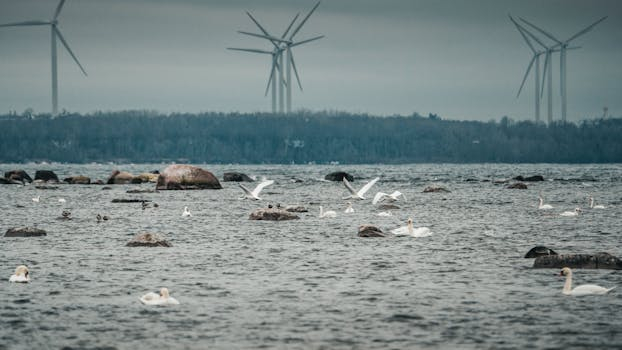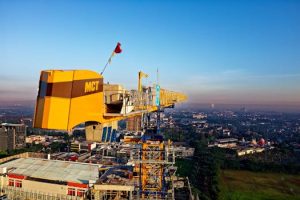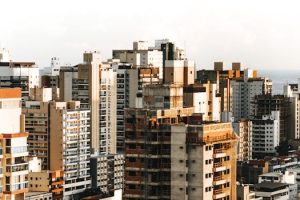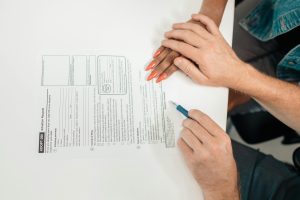What happens to the value of properties when there is an ecological disaster?
When an ecological disaster strikes, it can have far-reaching consequences that affect not only the environment but also the economy. The destruction caused by these disasters can have a significant impact on the value of properties in the affected areas. Whether it is a natural disaster like hurricanes, wildfires, or floods, or man-made disasters such as oil spills or nuclear accidents, the aftermath can leave homeowners and real estate investors wondering what will happen to their properties. In this article, we will dive into the effects of ecological disasters on property values and what homeowners can do to protect themselves.
Understanding Ecological Disasters and Their Effects
An ecological disaster refers to the disruption of the natural environment due to human activities or natural causes. These disasters can cause massive damage and destruction to the affected areas, including loss of life, damage to infrastructure, and destruction of homes and businesses. The aftermath of these events can be devastating, and the road to recovery can be long and challenging.
One of the often-overlooked effects of ecological disasters is the impact on property values. When a disaster strikes, and an area is declared a disaster zone, it can have a significant impact on the local real estate market. Let’s take a look at some of the factors that can affect property values after an ecological disaster.
Location, Location, Location
The location of a property plays a crucial role in its value, and this is especially true in the aftermath of an ecological disaster. If a property is located in an area that is prone to natural disasters, such as a hurricane or flood zone, it is more likely to suffer damage during an ecological disaster. As a result, properties in these areas may see a decline in value as buyers become wary of the potential risks.
On the other hand, properties that are located in areas that are less vulnerable to ecological disasters may see a spike in value as buyers look for safer options. This trend is often seen after disasters like hurricanes, where buyers may be more inclined to purchase properties inland, away from the coast.
Damage to Infrastructure
In addition to the damage to individual properties, ecological disasters can also cause significant damage to local infrastructure. Roads, bridges, and utility systems may be damaged or rendered unusable, which can impact the value of nearby properties. People may be less likely to want to purchase a home in an area with inadequate infrastructure, such as unreliable roads or lack of access to essential services like water and electricity.
Moreover, the costs of repairing or replacing damaged infrastructure can result in an increase in property taxes for homeowners in the affected area. This can turn away potential buyers who may not want to take on the additional financial burden.
Insurance Costs and Availability
In the aftermath of an ecological disaster, insurance companies may increase premiums or stop providing coverage in the affected areas. This can cause a significant increase in the cost of homeownership for those living in the disaster zone. As a result, properties in these areas may see a decline in value as buyers may be deterred by the high insurance costs.
Additionally, buyers may find it challenging to secure a mortgage for a property in a disaster-prone area. Lenders may be hesitant to provide loans for properties that may be at risk of damage or destruction, which can further decrease property values.
Protecting Your Property Value
So what can homeowners do to protect their property values in the face of an ecological disaster? Here are some tips:
Get Adequate Insurance Coverage
In the event of an ecological disaster, having adequate insurance coverage can provide peace of mind and help protect your property and its value. It is essential to review your insurance policies regularly to ensure that you have sufficient coverage for any potential risks in your area. Remember, standard homeowners’ insurance policies may not cover damages caused by certain disasters, such as floods or earthquakes, and may require additional coverage.
Invest in Disaster-Resistant Features
As a homeowner, there are steps you can take to make your property more disaster-resistant. These may include installing impact-resistant windows and doors, securing your roof, and reinforcing your foundation. These features can not only increase the safety of your home but also make it more attractive to potential buyers.
Stay Informed
Keeping up with local news and updates on potential risks in your area can help you stay ahead of the game. If you live in an area that is prone to ecological disasters, it is essential to have an emergency plan in place to protect your property and your family.
In Conclusion
Ecological disasters can have a significant impact on property values, and it is crucial for homeowners to understand the potential risks in their area. By taking the necessary precautions, staying informed, and having adequate insurance coverage, homeowners can help protect their property values and minimize the potential financial impact of an ecological disaster.
Remember, even though the aftermath of an ecological disaster may be daunting, with the proper preparation and precautions, homeowners can weather the storm and emerge with their property values intact.










